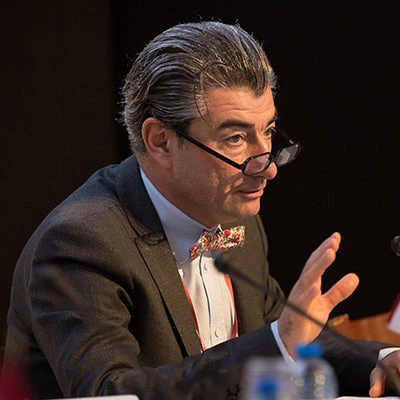We’re not ready!
That’s the prevailing message from the recently released 2019 Global Health Security Index. At least 75% of the 195 countries assessed received low scores on risk-related indicators for events such as avian influenza, SARS, Ebola or Zika.
One thread of this carefully knitted index stood out for me: on antimicrobial resistance (AMR), unsurprisingly, the world is not doing any better than on pandemics per se. With an average score of 42.4 (out of a possible 100), countries are scoring well below the passing mark, in terms of AMR surveillance and antimicrobial control. These numbers are especially relevant as we mark World Antibiotic Week and highlight the issue of AMR – which is the ability of a microorganism (such as a bacteria or a virus) to stop an antimicrobial (like antibiotics) from working against it, and threatens our capacity to effectively treat infectious diseases.
This is a sobering finding, because AMR is not a remote risk. It is with us already -- here and now. We know that it causes at least 700,000 deaths every year; a toll that could rise to 10 million deaths by 2050 annually if we fail to act.
AMR stands in the way of countries fully realizing their people’s potential and hinders the achievement of many of the UN Sustainable Development Goals.
A new World Bank report --Pulling Together to Beat Superbugs-- identifies some of the knowledge gaps such as the current level of antimicrobial consumption in humans and animals and what vaccines could be developed to reduce microbials that stymie efforts to contain AMR. Filling these gaps could increase the efficacy and cost-efficiency of our efforts. But a lack of knowledge isn’t driving the problem. Whether or not these gaps are filled shouldn’t determine or delay action.
What we know about AMR
Collectively, there’s a lot we already know and understand about AMR.
We know that the world’s poorest people --those living in low- and middle-income countries, or in the increasing areas affected by fragility, conflict and violence—are susceptible to infections due to factors like a lack of access to sanitation and are often overprescribed antibiotics, making them more vulnerable to AMR. We know that the use and misuse of antimicrobials is behind the emergence of AMR, and understand the many contextual factors exacerbating its spread.
We’ve seen stories that demonstrate success in controlling AMR, although we do not fully understand how to achieve success at scale.
We also know that—beyond interventions specifically aiming at AMR—a vast array of activities across multiple sectors are critical to curb AMR.
What the development community can do
Which brings me back to the development community.
Fighting AMR starts with being more conscious of how investments for development -- in agriculture, water and sanitation, urban development, education, and obviously health, nutrition and population-- can affect AMR.
We have learned to look at our investments through climate, nutrition, and gender lenses before. We have the skills and the power at the World Bank and throughout the development community to craft and apply an equally powerful “AMR lens.”
In the agricultural sector, for example, development professionals equipped with an AMR lens could actively look for opportunities to help countries reduce the use of antimicrobials in animal production, enforce prudent and responsible use, promote good animal husbandry practices, or phase out growth promoters and non-therapeutic use.
It may sound small – developing an AMR lens – but the effects could be significant. With 4.5 billion people still lacking access to safely managed sanitation, and with 73% of all antimicrobials sold globally being used in animals raised for food, sustainable development holds great promise for fighting AMR.



Join the Conversation